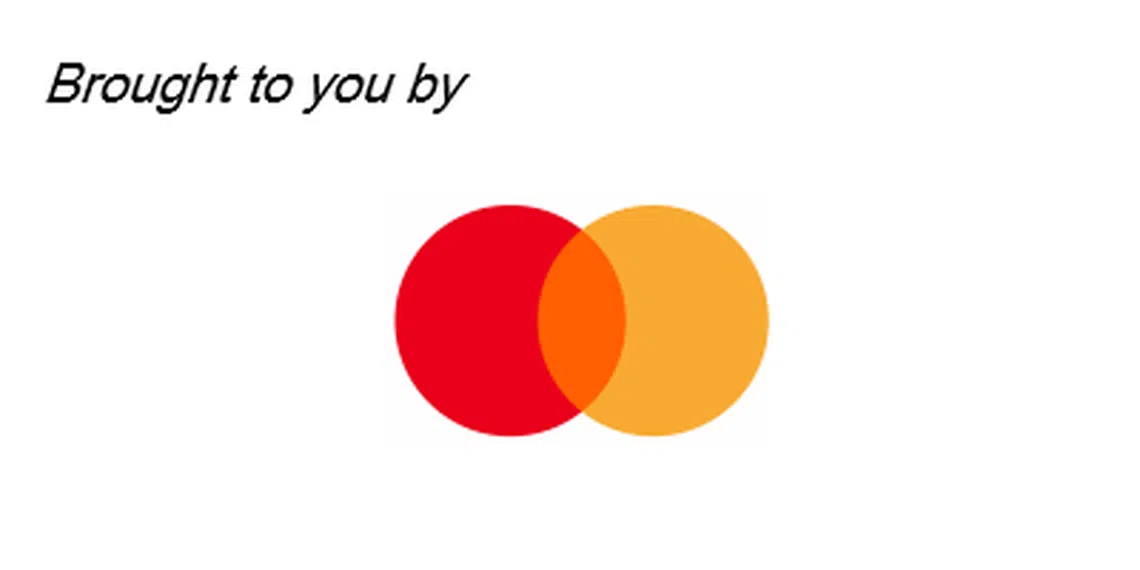Branded Content
Breaking stigmas, building bridges: Meet the parents making autism acceptance a reality for their children
As part of its #AcceptanceMatters campaign, Mastercard is creating awareness of hidden disabilities through an inspiring video series featuring real-life stories and the distribution of symbolic Sunflower wearables
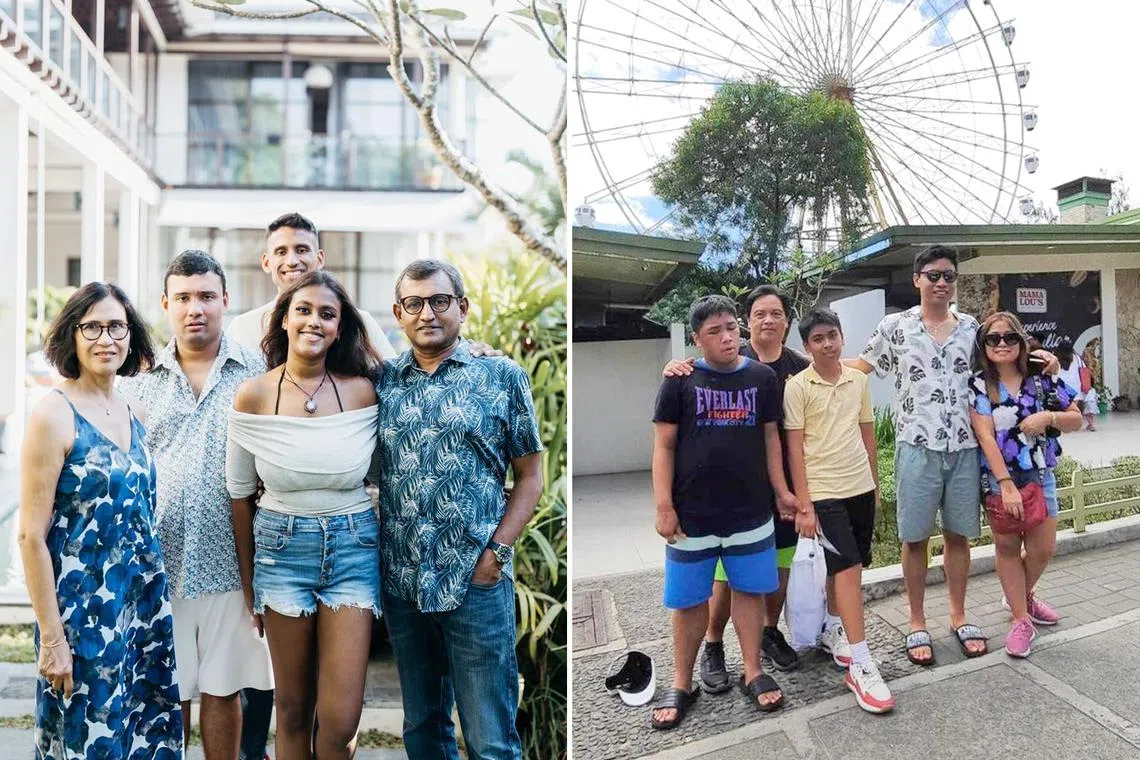
Having a child on the autism spectrum has not deterred the Moneys (left) and Solivens (right) from stepping out and giving their kids the chance to thrive. PHOTOS: THE MONEYS AND SOLIVENS
At 33, Mr Jeevan Money leads an active social life that centers around family, friendships and a close bond with his brother, Mr Ruben Money, who is 18 months older than him.
On weekends they enjoy hanging out with Mr Ruben’s group of friends. Beyond these friendships, Mr Jeevan is also part of a large extended family, with cousins who frequently organise outings, taking him for meals and activities.
While Mr Jeevan, who has autism, is non-verbal, it has not defined or limited his relationships. Instead, he has found his place within a warm network of family and friends who understand him and value his company.
“Jeevan’s brother will make it a point to include him in his plans with his friends. Sometimes the group will initiate it and tell my elder son Ruben, ‘hey, bring your brother along’. Everyone is very fond of him,” says Mr Jeevan’s dad, Mr Money K, 63, a retiree.
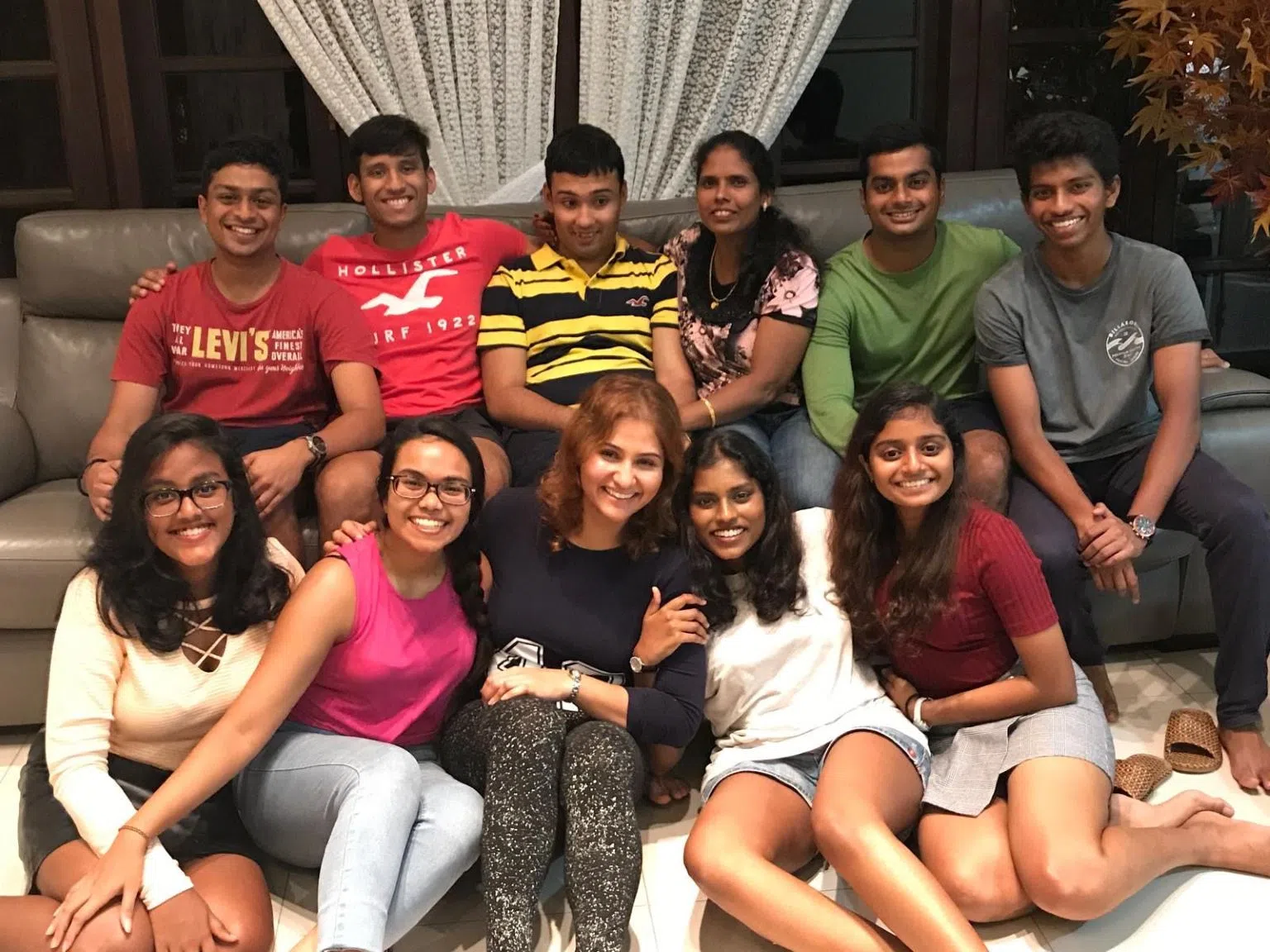
Mr Jeevan (second row, third from left) enjoys regular outings for meals and activities, thanks to the support of his close friends and extended family. PHOTO: THE MONEYS
It was not always this way, says Mrs Dhana Money, a homemaker, who has experienced her fair share of difficulties raising a child with autism. When Mr Jeevan was a child, he was prone to having meltdowns in public. Being non-verbal, he also relies on dramatic gestures to demonstrate his emotions.
“People would ask me what kind of a mother I was. I used to cry a lot,” she recalls. “Back then, awareness of autism was zero.”
According to St Andrew’s Autism Centre’s (SAAC) principal occupational therapist, Mr Khoo Jit Kuan, persons with autism experience the world differently from others. Some may find it challenging to communicate their needs as easily as neurotypical children, which can lead to anxiety and frustration, he says.
“This difficulty, combined with sensory sensitivities, crowded spaces, or changes in temperature or routines, can make everyday experiences in public spaces particularly stressful. When these triggers stack, anxiety builds, and frustration may intensify if they are unable to communicate their distress. This overflow of emotions can result in a meltdown — not a tantrum, but an expression of their difficulty in coping with the situation,” Mr Khoo adds.
However, this has not stopped the Money’s from venturing outdoors every chance they get. “Every day I take Jeevan out for a drive or a walk, sometimes in the evening to East Coast Park. He enjoys the outdoors, looking out at people and streetlights.”
The Moneys also take their son on trips. Mr Jeevan – who also has a younger sister aged 21 – travels up to four times a year with his family around Asia and on occasion to Europe.
Each trip is never an easy process but the family perseveres. “It’s a lot of work, but we bring him out because he needs to interact with society, be exposed to the world and learn to conduct himself in public. Jeevan needs to know there are boundaries. It’s also exposure for the public,’ says Mr Money.
Over the years, the Moneys have noticed a positive change in the way the public interacts with Mr Jeevan due to more awareness: passers-by will wave at him when the family goes on their daily walks and commuters in public buses no longer stare at him.
“It’s so nice to see this acknowledgement and that things are changing,” says Mr Money.
Giving people with autism the chance to integrate
According to Mr Bernard Chew, chief executive officer of SAAC: “One of the biggest challenges is the possibility of social isolation for persons with autism and their families because behaviours that arise from autism are not always well understood by members of the public. This in turn discourages persons with autism and their caregivers from accessing public spaces and facilities.”
To change this, Mr Chew says members of the public can try to reassure caregivers that there is nothing to be anxious about when they are worried how their children’s behaviour may be perceived by others.
“Such simple shows of support and empathy can go a long way in making every public space more welcoming and inclusive,” he adds.
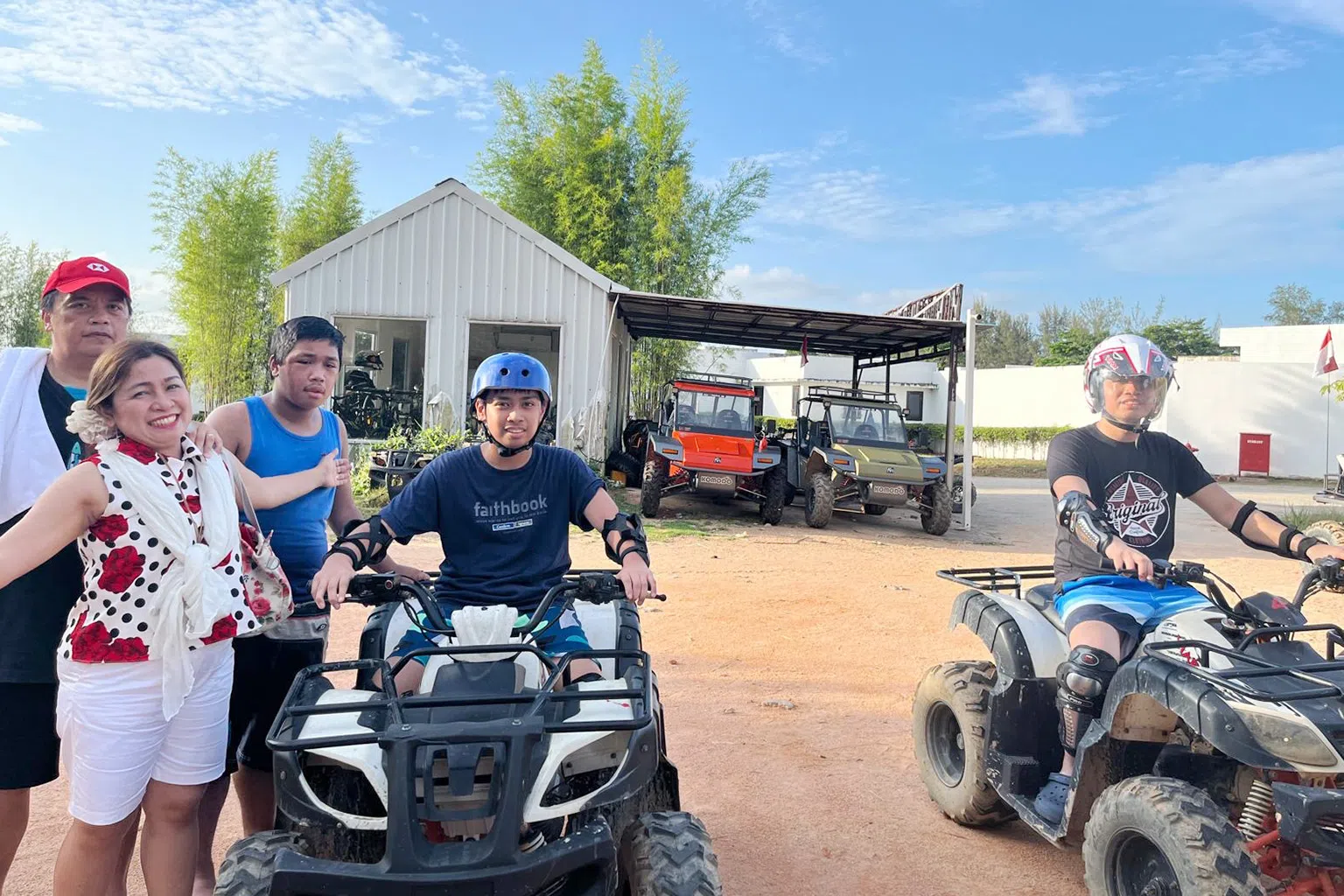
Over the years, Joseph and Mabel Soliven (far left) have learned that people’s responses to their son Matt’s (third from left) hidden disability vary depending on the situation and individuals involved. PHOTO: JOSEPH AND MABEL SOLIVEN
Like the Moneys, Joseph and Mabel Soliven believe in taking their 17-year-old son Matt, who was diagnosed with autism at age five, out as often as possible.
“Acceptance depends on the place we go to,” says Mr Soliven, 54, a pastor.
He recalled once at a furniture store in Singapore, Matt, who is non-verbal, was not ready to leave the place at closing time. A security guard asked his parents what was wrong and when they told him that “Matt is special”, the guard handed him some toys and chocolates. This kind gesture calmed him down immediately.
Another time when they were in Australia, Matt’s parents felt he had inconvenienced an elderly man by getting too close to him, but the man assured them he was okay with it.
For persons with autism, communication can be a challenge, especially when it comes to transitions, says Mr Khoo.
“In Matt’s case, he may not have wanted to leave the furniture store simply because he was enjoying himself or feeling too tired to move, but he could not explain why. This is common for many on the spectrum as they may not be able to express why they are acting a certain way or why a transition is difficult for them.
“It is important for those around them to be patient and try to understand their behaviour, as it is often the only way they can communicate their needs. Understanding personal space can also be tricky as social cues do not always come naturally. Clear, direct guidance can support them to better navigate these boundaries,” says Mr Khoo.
Mr Soliven adds that some strangers want the couple to share more about autism when they find out about Matt’s disability.
“But others don’t care. We don’t let it affect us, otherwise we won’t want to bring Matt out anymore. It shouldn’t stop us from doing the things that we know he enjoys,” he adds.
Watch Matt’s story
According to the Solivens, Matt enjoys music, he plays the drums and loves going outdoors for walks in the park and trips to the mall. “He especially likes the mall because there is aircon,” quips Mrs Soliven, 49, an assistant pastor.
The Soliven’s, who have two other sons aged 20 and 13, also travel with Matt as much as they can. They have taken family trips back home to the Philippines, Australia and recently, Japan.
On the Solivens’ wishlist: more places in Singapore for those with special needs, like fast food restaurants with priority queues.
“Matt is a blessing to us. Instead of feeling helpless, we look forward, encourage others and stand up for our kid,” adds Mrs Soliven.
#AcceptanceMatters for a more inclusive and accepting society
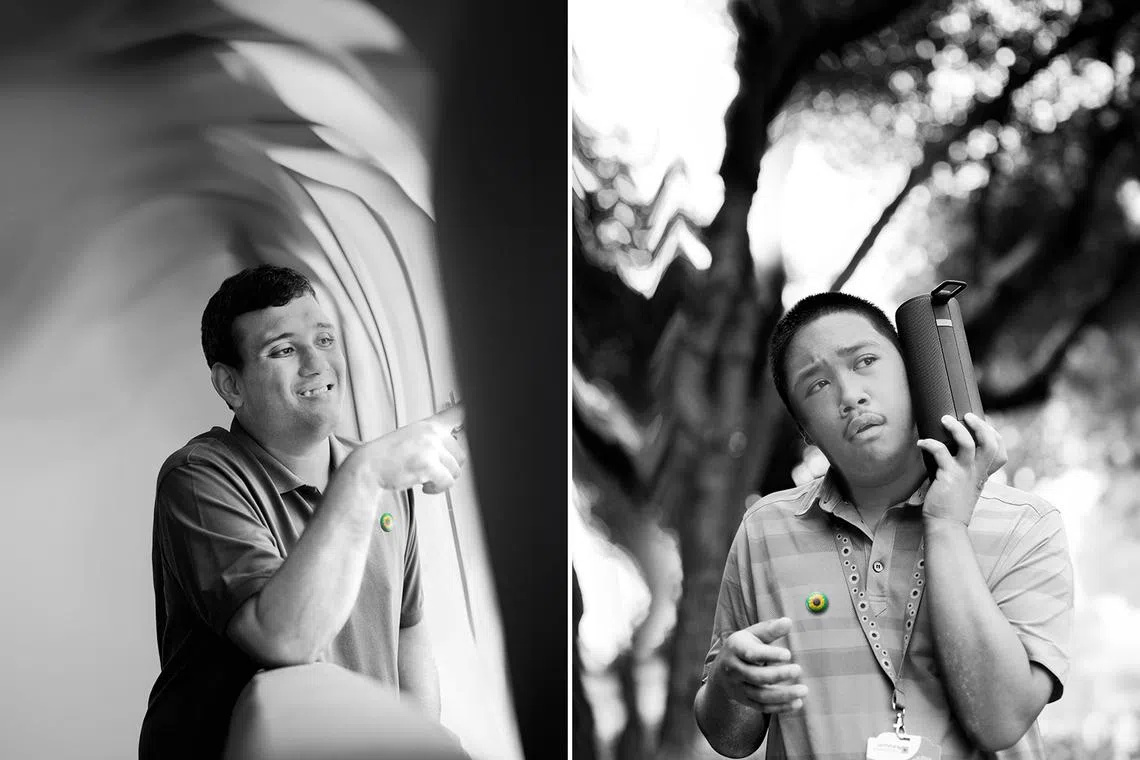
Mr Jeevan (left) and Matt have shared their stories in a video series, aimed at raising awareness about individuals with hidden disabilities. PHOTO: MASTERCARD
Raising awareness of persons with autism like Mr Jeevan and Matt is the key idea behind Mastercard’s #AcceptanceMatters campaign 80 per cent of them have a non-visible disability like autism, dyslexia or dementia Singapore, about 26,000 people, including over 5,000 under the age of 20, are on the autism spectrum Hidden Disabilities Sunflower Amazon shop
The campaign is a partnership with St Andrew’s Autism Centre (SAAC), Hidden Disabilities Sunflower, HSBC and Frasers Property Singapore.
According to Hidden Disabilities Sunflower, across the world, one in six people live with a disability and up to
By showcasing real-life stories like Mr Jeevan’s and Matt’s, in a series of videos, the #AcceptanceMatters campaign hopes to increase empathy among the public and foster a more supportive community.
“At Mastercard, the goal is to encourage a more inclusive society by being a more accepting society, where we work together to improve interactions and everyday experiences for people with hidden disabilities.
“From this campaign, we are focused on helping to move the needle on normalising the conversations around disabilities and having people in Singapore think about what we do in our daily actions to drive inclusion,” adds Ms Julie Nestor, executive vice president, Marketing & Communications, Asia Pacific, Mastercard.
Through this campaign, Mastercard is also supporting Hidden Disabilities Sunflower by sponsoring and supporting the distribution of the Sunflower wearables through St Andrew’s Autism Centre. These wearables will also be distributed at HSBC branches and offices. It is also available for purchase at the
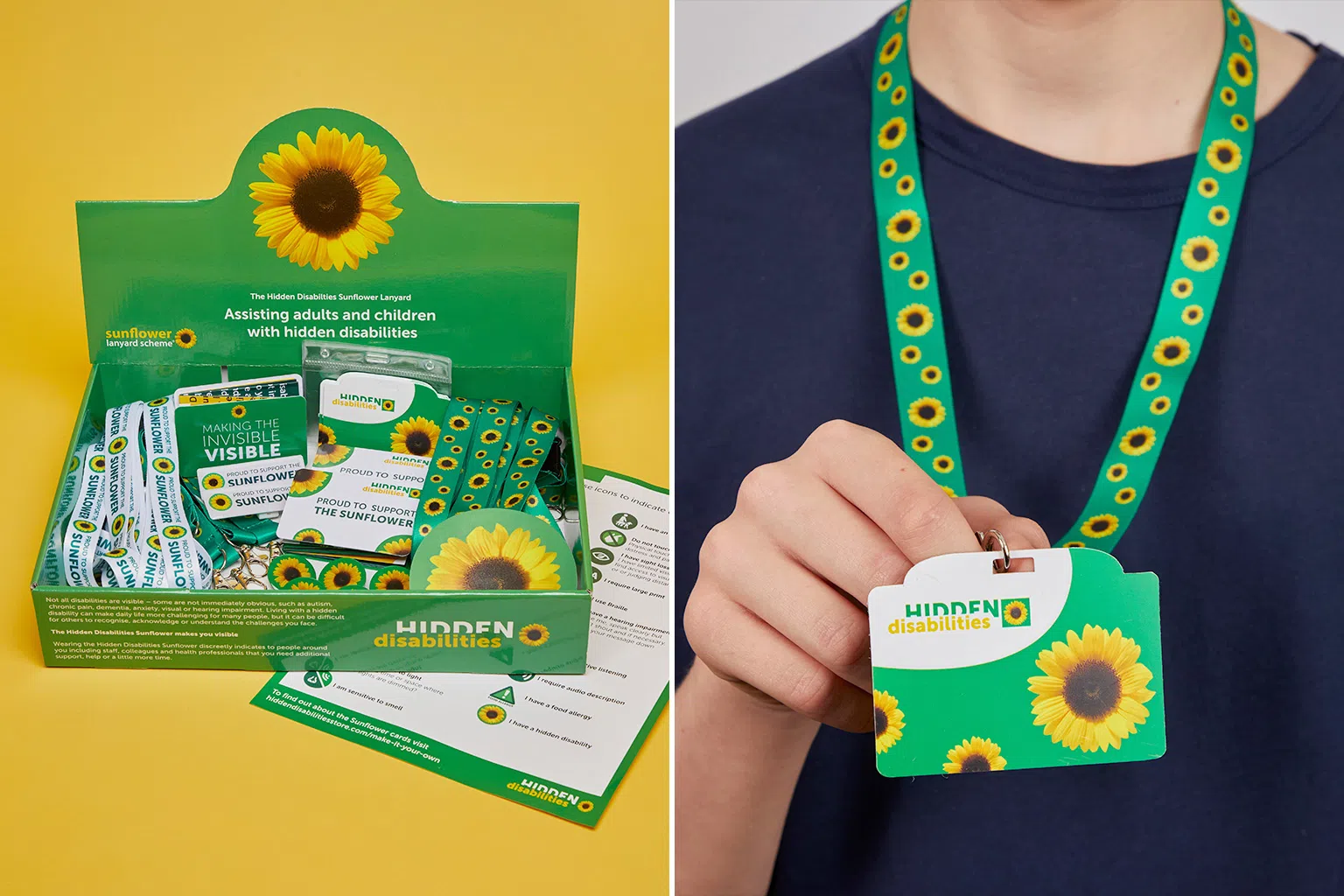
The Sunflower wearables are a way for individuals to signal when they might need extra support and for the public to respond with understanding. PHOTO: HIDDEN DISABILITIES SUNFLOWER
The Sunflower symbol serves as a way for individuals to signal when they might need extra support and for the public to respond with empathy and understanding. Mastercard hopes its #AcceptanceMatters campaign will increase recognition of this symbol in Asia.
“Overall, the response to the real-life stories shared on our campaign website has been incredibly supportive,” says Ms Nestor.
“By wearing the Sunflower, individuals signal that they might need extra help, understanding, or more time. Ideally, organisations throughout Singapore, whether it be in transit, airports, restaurants, malls, or other public places, can recognise those identifiers, understand if somebody might need extra support and be able to provide that support.”
For more information visit www.saac.org.sg/acceptancematters video series
